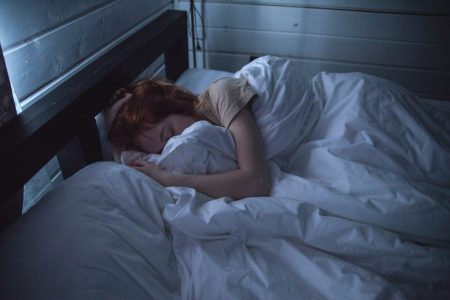 New research has shown that there is a very interesting connection between deep sleep and the levels of anxiety that people are experiencing. MRI scans and polysomnography were used to scan the brains of several young adults while they were watching emotionally stirring videos after a night with little sleep as well as a night with full sleep.
New research has shown that there is a very interesting connection between deep sleep and the levels of anxiety that people are experiencing. MRI scans and polysomnography were used to scan the brains of several young adults while they were watching emotionally stirring videos after a night with little sleep as well as a night with full sleep.
The participants in this research were then measured to see what levels of anxiety they were experiencing. The results that were gained through this research were repeated in a separate study of a larger group of young adults.
Shortly after these studies were completed researchers did an online survey of close to three hundred people of all ages and backgrounds and tracked their levels of sleep and anxiety over four days. The resulting information showed that there was indeed a connection between the level of sleep someone was getting and anxiety disorders.
Because of the study that was conducted it was found that being able to get a full night of sleep was able to stabilize emotions. It also concluded that a not with little sleep can cause anxiety levels to rise up to thirty percent. It was also found that those that were getting non-REM sleep were experiencing the biggest level of reduction in their anxiety. Simply put the more restful sleep the better the reduction of anxiety.
The Different Stages of Sleep
This study shed a great deal of light on deep sleep which is the third stage of sleep. This is the type of sleep that we get the least, especially if the sleep you do get is disturbed. Let’s take a look at the other stages of sleep.
The first stage of sleep that you will get is light sleep. During this type of sleep you are the easiest to wake up. During this phase of sleep your body will be taking care of many important metabolic functions while also organizing memories and preparing the body for deeper stages of sleep.
The second stage of sleep is known as REM sleep also known as Rapid Eye Movement Sleep. During this phase of sleep our eyes move back and forth as though we are watching an internal television show. It is also important to note that during REM sleep important information is organized so that it will be clearer to remember the next day.
The third stage of sleep is known as non-REM sleep because a person’s brain waves are much slower than the frantic pace of REM sleep. This is also referred to as deep sleep. A person’s body will generally go into deep sleep after a cycle of light and REM sleep. The bad news here that can cause anxiety disorders is that if you get fragmented sleep you can skip deep sleep entirely.
Deep Sleep is Nature’s Remedy
Being able to get deep sleep is nature’s antidote to anxiety. If you are suffering from and number of anxiety disorders you are likely not getting a lot of sleep. Anxiety itself can often interfere with getting a restful night of sleep as someone might be staying up to do things like worry about something. Other times it is unhealthy behaviors like getting too much screen time on a phone or computer. If you are constantly checking for messages and updates you are going to get broken sleep. Broken sleep is going to interfere with your ability to deal with anxiety.
Sleep Can Be Therapeutic
As a result of studies like these it should be time to get a closer look at the sleep habits of young children and teens. This is even more important with kids that have an anxiety diagnosis. Parents should be encouraging sleep as much as possible to make sure their kids are getting enough rest. They should also be getting restful sleep themselves as they can avoid a lot of anxiety issues themselves.
If you are looking for help dealing with issues like anxiety and depression you should contact Advantage Mental Health Center as they can help you take the first steps in getting the help that you need.
Picture Credit: Ivan Oboleninov
